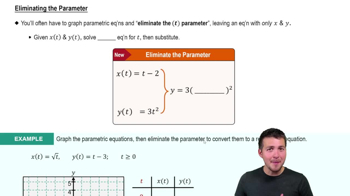Mean Value Theorem for Integrals Find or approximate all points at which the given function equals its average value on the given interval.
ƒ(𝓍) = 8 ― 2𝓍 on [0, 4]
 Verified step by step guidance
Verified step by step guidance Verified video answer for a similar problem:
Verified video answer for a similar problem:



 6:37m
6:37mMaster Average Value of a Function with a bite sized video explanation from Patrick
Start learning